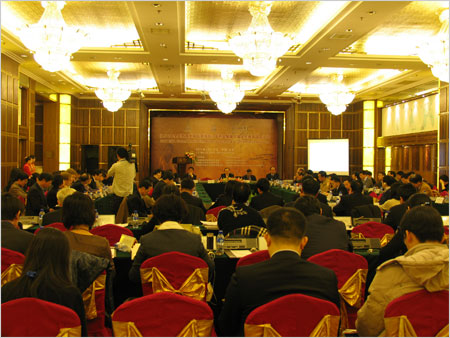The 2011 EFA Global Monitoring Report Launch and 6th EFA National Forum was held on March 1st in Beijing, organized by UNESCO Beijing Office and the Chinese National Commission for UNESCO. Vice president of the Open University of China, Zhang Shaogang attended the forum.
The Dakar Framework for Action on Education for All (EFA)
adopted by governments across the world in Dakar, Senegal, in 2000 set six broad goals and a number of specific targets to meet by 2015. One of the most significant roles of the 2011 EFA Global Monitoring Report is to track the six EFA goals:
- Early childhood care and education
- Universal primary education
- Youth and adult learning
- Adult literacy
- Gender parity and equality
- The quality of education

This year's report, entitled The Hidden Crisis: Armed Conflict and Education, is divided into two parts. Part One provides a snapshot of the state of education around the world. It identifies the improvements, setbacks and a range of policy interventions that could help accelerate progress. Part Two turns to one of the greatest obstacles to the achievement of the EFA goals: armed conflicts in the world's poorest countries. The report looks at the policy failures reinforcing this barrier, and at strategies for removing it. It also sets out an agenda for strengthening the role of education systems in preventing conflicts and building peaceful societies.
Tang Qian, Assistant Director-General of UNESCO, presented the highlights from the 2011 EFA Global Monitoring Report. He pointed out that the governments in the world are not on track to achieve the EFA targets set for 2015. Although there has been progress in many areas, the overarching message to emerge from the 2011 EFA Global Monitoring Report is that most of the goals will be missed by a wide margin. Countries affected by armed conflict face particularly daunting challenges. Governments will have to demonstrate a far greater sense of urgency, resolve and common purpose to bring the targets within reach.
By Dai Jing, the OUC